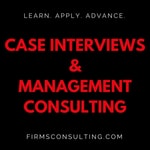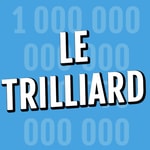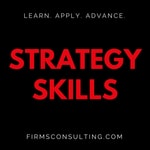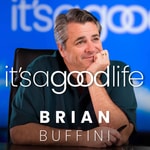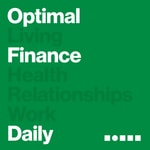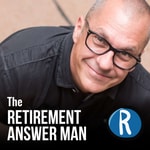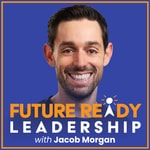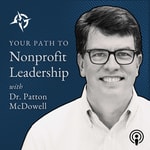The Tension Podcast – Détails, épisodes et analyse
Détails du podcast
Informations techniques et générales issues du flux RSS du podcast.
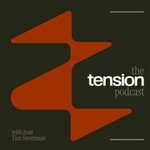
The Tension Podcast
Tim Sweetman
Fréquence : 1 épisode/14j. Total Éps: 49

www.timsweetman.com
Classements récents
Dernières positions dans les classements Apple Podcasts et Spotify.
Apple Podcasts
🇬🇧 Grande Bretagne - management
27/05/2025#77🇫🇷 France - management
01/10/2024#98🇫🇷 France - management
30/09/2024#85🇫🇷 France - management
29/09/2024#68🇫🇷 France - management
28/09/2024#59🇫🇷 France - management
27/09/2024#41
Spotify
Aucun classement récent disponible
Liens partagés entre épisodes et podcasts
Liens présents dans les descriptions d'épisodes et autres podcasts les utilisant également.
See all- https://zapier.com/
560 partages
- https://brenebrown.com/
436 partages
- https://www.whoop.com/us/en/
379 partages
- https://en.wikipedia.org/wiki/Tim_Ferriss
29 partages
- https://en.wikipedia.org/wiki/Kobe_Bryant
19 partages
Qualité et score du flux RSS
Évaluation technique de la qualité et de la structure du flux RSS.
See allScore global : 53%
Historique des publications
Répartition mensuelle des publications d'épisodes au fil des années.
Episode #44: The Soul of Starbucks —Howard Schultz on Crisis, Culture, and Comeback
lundi 9 septembre 2024 • Durée 38:28
Episode Summary
This episode explores Howard Schultz's book Onward: How Starbucks Fought for Its Life without Losing Its Soul, detailing Starbucks' journey through the 2008 financial crisis and its subsequent transformation. The host analyzes Schultz's leadership philosophy, Starbucks' core values, and the challenges faced during this pivotal time.
Key Takeaways
* Schultz's leadership philosophy centers on balancing profit with social conscience
* Starbucks lost its way in 2007 due to rapid expansion and loss of focus on core operations
* The importance of maintaining brand authenticity and customer experience during growth
* Schultz's return as CEO in 2008 to lead the company's transformation
* The role of employee (partner) engagement in delivering exceptional customer experiences
* Implementing customer feedback systems like MyStarbucksIdea.com
* Balancing efficiency with maintaining the "romance" of the Starbucks experience
* The challenges of closing 600 stores and its impact on communities
* Applying lean methodologies to improve operations without compromising quality
Quotes
* "As a business leader, my quest has never been just about winning or making money. It has also been about building a great, enduring company, which has always meant trying to strike a balance between profit and social conscience." - Howard Schultz
* "No business can do well for its shareholders without first doing well by all the people its business touches." - Howard Schultz
* "Success is not sustainable if it's defined by how big you become." - Howard Schultz
* "Starbucks never set out to be cool. We set out to be relevant." - Howard Schultz
People Mentioned
* Howard Schultz (former CEO and Chairman of Starbucks)
* Jim Donald (former Starbucks CEO)
* Michael Dell (founder of Dell Technologies)
* Jim Senegal (co-founder and former CEO of Costco)
* Steve Jobs (mentioned briefly)
* Cliff Burrows (Starbucks leader)
* Daniel Henninger (Deputy Editor of the Wall Street Journal)
* Bono (U2 frontman, quoted on business ethics)
Books Mentioned
* Onward: How Starbucks Fought for Its Life without Losing Its Soul by Howard Schultz
Companies/Organizations Mentioned
* Starbucks
* Dell
* Costco
* McDonald's (as a competitor)
Concepts and Ideas Discussed
* Integrative thinking in leadership
* Brand authenticity and customer loyalty
* The "Third Place" concept in retail
* Balancing growth with maintaining company culture
* Crisis management in large corporations
* The importance of customer feedback in business transformation
* Lean methodologies in retail operations
* Corporate social responsibility
* The role of company culture in business success
Starbucks Initiatives Mentioned
* MyStarbucksIdea.com (customer feedback platform)
* Starbucks Rewards program
* Entertainment strategy (selling music and movies in stores)
* Pike Place Roast (as a product development example)
* Lean techniques implementation in stores
Episode Highlights
* [00:01:00] Introduction to Howard Schultz's book "Onward"
* [00:05:00] The "beverage of truth" and shutting down all stores for training
* [00:08:00] Signs of hubris and overextension into entertainment
* [00:15:00] The importance of emotional connection in Starbucks' value proposition
* [00:19:00] Implementation of MyStarbucksIdea.com
* [00:22:00] Balancing business transformation with preserving company culture
* [00:27:00] The critical role of store managers in Starbucks' success
* [00:29:00] Decision to close 600 stores and its impact
* [00:34:00] Howard Schultz's personal approach to competition and customer loyalty
* [00:36:00] Applying lean methodologies to improve store operations
Get full access to Tension at www.timsweetman.com/subscribe
Episode #43: Viktor Frankl — Man's Search for Meaning
vendredi 7 juin 2024 • Durée 48:13
In this episode, Tim Sweetman delves into the profound wisdom and insights from Viktor Frankl's influential book, "Man's Search for Meaning." As a Holocaust survivor and renowned psychiatrist, Frankl's experiences in the concentration camps served as the foundation for his groundbreaking philosophical and therapeutic approach, logotherapy. This episode explores the central themes of Frankl's work, emphasizing the significance of finding meaning in life, even in the face of unimaginable suffering and adversity.
Key Takeaways:
* The Importance of Tension for Personal Growth and Meaning: Frankl argues that a certain degree of tension is essential for mental health and personal development. He suggests that what humans truly need is not a tensionless state, but rather the striving and struggling for a worthwhile goal or a freely chosen task. This tension between what one has already achieved and what one still ought to accomplish is the driving force behind self-actualization and the discovery of meaning in life.
* The Paradox of Happiness: One of the central ideas in Frankl's work is the paradox of happiness. He maintains that directly pursuing happiness can lead to frustration and disappointment. Instead, he suggests that happiness is a byproduct of accepting uncertainty and tension in life, and focusing on finding meaning and purpose. By dedicating oneself to a cause greater than oneself or loving another person, one can experience a profound sense of fulfillment and happiness.
* Three Ways to Find Meaning in Life: Frankl identifies three primary ways in which individuals can discover meaning in their lives:
* Creating a work or doing a deed: Engaging in creative pursuits or accomplishing tasks that contribute to the world around us.
* Experiencing something or encountering someone: Finding meaning through the appreciation of beauty, art, nature, or forming deep connections with others through love and relationships.
* The attitude taken towards unavoidable suffering: When faced with unavoidable suffering, individuals have the opportunity to find meaning by choosing their response and maintaining a courageous and dignified attitude in the face of adversity.
* The Power of Choice and Human Dignity: A central theme in Frankl's work is the importance of recognizing and exercising our freedom to choose, even in the most dire circumstances. He argues that the ability to choose one's attitude and response to any given situation is what sets humans apart and allows us to maintain our dignity and find meaning, even in the darkest of times. Frankl emphasizes that while we may not always have control over our circumstances, we always have the freedom to choose how we respond to them.
* Tragic Optimism: Finding Hope in the Face of Pain, Guilt, and Death Frankl introduces the concept of tragic optimism, which is the ability to remain hopeful and find meaning despite the presence of what he calls the "tragic triad": pain, guilt, and death. He suggests that by embracing tragic optimism, individuals can transcend their suffering and find purpose and significance in their lives, even when confronted with the most challenging and painful experiences.
Notable Quotes:
* "Everything can be taken from a man but one thing: the last of the human freedoms—to choose one's attitude in any given set of circumstances, to choose one's own way." (p. 66)
* "Those who have a 'why' to live, can bear with almost any 'how'." (p. 76)
* "The salvation of man is through love and in love." (p. 37)
* "Suffering ceases to be suffering at the moment it finds a meaning." (p. 113)
* "The meaning of life is to be discovered in the world rather than within man or his own psyche." (p. 115)
* "Man does not simply exist but always decides what his existence will be, what he will become the next moment. By the same token, every human being has the freedom to change at any instant." (p. 131)
* "Life is never made unbearable by circumstances, but only by lack of meaning and purpose." (p. 104)
* "In some way, suffering ceases to be suffering at the moment it finds a meaning, such as the meaning of a sacrifice." (p. 113)
* "The point is not what we expect from life, but rather what life expects from us." (p. 77)
* "Love is the only way to grasp another human being in the innermost core of his personality." (p. 111)
Logotherapy and Paradoxical Intention: Frankl's experiences in the concentration camps led him to develop logotherapy, a form of existential analysis that focuses on the search for meaning as the primary motivational force in human life. Logotherapy emphasizes the importance of helping individuals identify and pursue their unique purpose, even in the face of suffering and adversity.
One of the key techniques used in logotherapy is paradoxical intention, which involves encouraging individuals to embrace and even exaggerate their fears or anxieties. By doing so, patients can break free from the cycle of anticipatory anxiety and self-fulfilling prophecies. Frankl provides examples of how paradoxical intention can be used to treat conditions such as insomnia, obsessive-compulsive disorder, and phobias.
Frankl's Legacy and Influence: "Man's Search for Meaning" has had a profound impact on the fields of psychology, psychotherapy, and personal development. Frankl's insights into the human condition, the importance of meaning, and the resilience of the human spirit have inspired countless individuals to find purpose and hope in the face of adversity.
Frankl's work has been widely recognized and celebrated, with "Man's Search for Meaning" having sold over 16 million copies worldwide and being translated into more than 50 languages. The Viktor Frankl Institute, founded in Vienna, Austria, continues to promote and advance Frankl's ideas and the practice of logotherapy.
Applying Frankl's Insights to Modern Life: While Frankl's experiences in the concentration camps may seem far removed from the challenges of modern life, his insights and wisdom remain highly relevant and applicable. In an age of increasing automation, technology, and potential for existential vacuum, Frankl's emphasis on the importance of finding meaning and purpose is more important than ever.
Individuals can apply Frankl's ideas to their own lives by:
* Identifying and pursuing personal values and goals that align with their unique sense of purpose.
* Embracing challenges and viewing them as opportunities for growth and meaning.
* Cultivating a sense of responsibility and commitment to something greater than oneself.
* Practicing self-awareness and exercising the freedom to choose one's attitude and response to life's circumstances.
* Seeking out experiences that promote personal growth, connection, and the discovery of meaning, such as engaging in creative pursuits, fostering meaningful relationships, and contributing to the well-being of others.
Conclusion
Viktor Frankl's Man's Search for Meaning offers a timeless and profound exploration of the human condition, the importance of finding purpose, and the resilience of the human spirit. Through his own experiences and the development of logotherapy, Frankl provides valuable insights and tools for individuals seeking to lead meaningful and fulfilling lives, even in the face of adversity and suffering.
By embracing the key takeaways from Frankl's work, such as the importance of tension for personal growth, the paradox of happiness, the three ways to find meaning in life, the power of choice and human dignity, and the concept of tragic optimism, individuals can cultivate a deeper sense of purpose and navigate life's challenges with greater resilience and hope.
Resources Mentioned:
* Man's Search for Meaning by Viktor E. Frankl (Amazon link)
* The Will to Meaning: Foundations and Applications of Logotherapy by Viktor E. Frankl (Amazon link)
* Recollections: An Autobiography by Viktor E. Frankl (Amazon link)
* The Viktor Frankl Institute Vienna (Website)
* Viktor Frankl: A Life Worth Living by Anna S. Redsand (Amazon link)
* The Unheard Cry for Meaning: Psychotherapy and Humanism by Viktor E. Frankl (Amazon link)
Additional Resources:
* Yes to Life: In Spite of Everything by Viktor E. Frankl (Amazon link)
* The Doctor and the Soul: From Psychotherapy to Logotherapy by Viktor E. Frankl (Amazon link)
* Prisoners of Our Thoughts: Viktor Frankl's Principles for Discovering Meaning in Life and Work by Alex Pattakos and Elaine Dundon (Amazon link)
* Viktor Frankl's Search for Meaning: An Emblematic 20th-Century Life by Timothy Pytell (Amazon link)
* Finding Meaning in the Second Half of Life: How to Finally, Really Grow Up by James Hollis (Amazon link)
* The Power of Meaning: Crafting a Life That Matters by Emily Esfahani Smith (Amazon link)
* The Pursuit of Meaning: Viktor Frankl, Logotherapy, and Life by Joseph B. Fabry (Amazon link)
Get full access to Tension at www.timsweetman.com/subscribe
#34: Desmond Lim — Co-Founder of Workstream, Harvard & MIT Graduate, and Immigrant Success Story
vendredi 5 avril 2024 • Durée 28:56
Desmond Lim is co-founder and CEO of Workstream, an automated hiring platform for companies hiring hourly workers.
He is a graduate of Harvard and MIT Media Lab, former product manager at WeChat, and investor at Dorm Room Fund. He was named to Silicon Valley Business Journal’s 40 under 40, and was honored by Ernst and Young as an entrepreneur of the year finalist.
He is based in San Francisco and lived in Palo Alto with his wife and two young daughters.
Connect with Desmond Lim:
Selected Links From The Episode
* Workstream Raises Additional $60M, Extending Series B Round to $108M
* Desmond Lim in Forbes Magazine
* The complete guide to applicant tracking systems
Quotes From The Interview
* “What the mind can conceive and believe it can achieve.” - Desmond Lim
* “I believe in the democratization of technology for the deskless workforce. - Desmond Lim
People Mentioned
* Jay-Z
Show Notes
* [00:00:00] Introduction to Desmond Lim
* [00:02:27] Growing up in Singapore and parents’ example shaped Desmond today
* [00:06:31] Lessons his parents instilled in him
* [00:07:31] Importance of taking hard work seriously growing up
* [00:09:03] Grateful to have made it to the U.S.
* [00:10:36] Favorite failure and the challenges along the way and how he approached it
* [00:14:32] Workstream is about his seventh company, learning ins and outs of business
* [00:18:36] What is the one thing that you encourage founders to do?
* [00:21:50] Vision for Workstream
* [00:25:55] What do you share to inspire your team?
Get full access to Tension at www.timsweetman.com/subscribe
#33: Josh Etress — COO at Anchor Investments; Tactical Leadership Lessons, Life Planning, and 5 Key Elements of Time Management
vendredi 29 mars 2024 • Durée 01:20:15
Josh Etress is currently the Chief Operating Officer at Anchor Investments, America’s most generous Commercial Real Estate Company. He is also the COO of The Russell and The Gallatin Hotel. He brings experience from previous roles at WildSparq as the Vice President of Sales & Client Success, as well as years serving with Campus Outreach in Birmingham, Alabama. He is a graduate of Berry College.
Josh Etress’ Personal Mission
No matter where I land, I intend to multiply leaders.Life mottos: No Reserves. No Retreats. No Regrets. #TheBestIsAhead #KeepImpactingPersonal Values:- Relentless Optimism- Bias Toward Action- Team > Self- Aggressive Learning- Focus on People & ResultsHow I think about life:Healthy things grow w/ the right soil, sunlight, and root system to produce 30x, 60x, 100x impact. Creating maximum conditions for growth; Pruning all aspects of life that don’t produce fruit.1, 5, 10, 20 year and Lifetime Targets:- Impact 100 Lives: in 1 Year- Impact 1,000 Lives: in 5 years- Impact 10,000 Lives: in 10 Years- Impact 100,000 Lives: in 20 years- Impact 1,000,000 Lives: in my lifetime
Connect with Josh Etress:
Selected Links From The Episode
* POPSP
Recommended Books:
* The Right—and Wrong—Stuff: How Brilliant Careers Are Made and Unmade by Carter Cast
* The Intentional Father: A Practical Guide to Raise Sons of Courage and Character by Jon Tyson
* The 4-Hour Workweek: Escape 9-5, Live Anywhere, and Join the New Rich by Timothy Ferriss
* When: The Scientific Secrets of Perfect Timing by Daniel H. Pink
* Deep Work: Rules for Focused Success in a Distracted World by Cal Newport
* Digital Minimalism: Choosing a Focused Life in a Noisy World by Cal Newport
* Give and Take: Why Helping Others Drives Our Success by Adam Grant
* Switch: How to Change Things When Change Is Hard by Chip Heath & Dan Heath
* Atomic Habits: An Easy & Proven Way to Build Good Habits & Break Bad Ones by James Clear
* Coaching for Breakthrough Success: Proven Techniques for Making Impossible Dreams Possible by Jack Canfield & Peter Chee
Quotes From The Interview
* “There’s always a legal right and there’s a moral right in real estate or a legal right and an ethical right and what that means is you can actually alter the experience that a tenant has with you by going above and beyond to educate them.” - Josh Etress
* “One of the best things you can say as a leader is to say that you were right, I was wrong, will you help me, and you invite people into your personal growth.” - Josh Etress
* “Logic and intuition, one is not better than the other. You have to have the right blend personally, professionally within your team within the context of your business to make the best decisions.” - Josh Etress
People Mentioned
Show Notes
* [00:00:00] Introduction to Josh Etress
* [00:01:40] Journey from leadership role to real estate
* [00:03:34] One thing that attracted Josh to Anchor is generosity as a core value
* [00:03:57] Commercial real estate and hospitality industry are similar in challenges
* [00:04:54] Flipping the idea of traditional landlord and tenant relationship on its head
* [00:07:00] Generosity in going above and beyond to educate a tenant and alter their experience into a positive one
* [00:07:21] Generosity in long-term impact on future partnerships
* [00:08:55] Generosity in redeeming the buildings we purchase
* [00:09:24] Thoughtful in creating a portfolio of real estate where people can engage
* [00:10:20] How to have this mission mindset while staying in business
* [00:13:04] What have you done to switch that mentality for your team and community to pursue excellence rather than maximize profit for self?
* [00:17:51] Josh and Tim first meeting through Wild Spark and growth over the years
* [00:19:24] How Josh evolved into the a leader that does a great job in helping others multiply and grow
* [00:24:45] How do you create the right environment for your team to grow?
* [00:31:12] How have you gone about getting people to feel confident enough to give feedback to their boss and how do you use that feedback
* [00:39:00] How have those who’ve reported to you responded when you ask for their feedback?
* [00:40:39] How are you intentional in giving and receiving feedback?
* [00:46:20] The great resignation and the cultural shift
* [00:50:29] How would you encourage a leader that’s found themselves in an organization they’ve allowed to become toxic?
* [00:54:00] The 1-Page Plan for Your Life
* [00:57:33] Many leaders don’t spend a lot of time on a strategic plan, what would you say to someone who says I don’t need this?
* [01:02:18] Five key elements in time management
* [01:09:53] Josh’s article on the mantra “You can do better” and getting away from that
* [01:15:00] Recommended books and authors
Get full access to Tension at www.timsweetman.com/subscribe
#32: Alec McNayr — Searching for Who You Truly Are
vendredi 22 mars 2024 • Durée 01:05:12
Alec McNayr is the Founder of Spotlight & Co., and former founder and COO of McBeard which was acquired by FullScreen in 2015.
He is an Entrepreneurial leader, storyteller, and builder of teams. Alec advocates for creative approaches to social media, humor as a leadership development device, and remote-working strategies. He was named to the "40 under 40" list for both AdAge and Pepperdine University.
Alec has also published a humor book, sold a pilot to ABC, was honored by the Webby Awards, worked for two failed dot-com companies, grew a company from two people to hundreds, and then navigated McBeard's acquisition by Fullscreen in 2015 (and then to AT&T/WarnerMedia in 2018).
Connect with Alec McNayr:
Spotlight | Substack | LinkedIn | X
Recommended Books:
* Decade By Decade by Bobb Biehl
* Asking Profound Questions by Bobb Biehl
* The Pathless Path: Imagining a New Story For Work and Life by Paul Millerd
Quotes From The Interview
* “I painted myself into a corner professionally. I didn’t like that I couldn’t be myself and so is it the nature of corporate business that paints people who are creative and odd and different in a corner or not?” - Alec McNayr
* “I once got a standing ovation, and it kickstarted the darkest era of my entire life.” - Alec McNayr (Tweet This)
People Mentioned
Show Notes
* [00:00:00] Introduction to Alec McNayr
* [00:03:05] How Alec got started with digital marketing by day and performed at night
* [00:06:27] Choosing between being pragmatic vs creative
* [00:08:00] What were you like at 10 years old?
* [00:10:09] The hilarious way McBeard was formed
* [00:13:10] Nokia becomes first client of McBeard
* [00:13:48] Got introduced to 20th Century Fox and made a Twilight spoof
* [00:16:57] Team grew from 2 to 150 people in 8 years
* [00:17:49] Alec and Alan start another company together
* [00:19:54] Getting a standing ovation kickstarted my darkest era
* [00:25:19] Grappling with self-identity between being serious and being creative
* [00:29:18] What would Alec go back and tell himself
* [00:34:40] Redefining success
* [00:39:50] How Alec encourages others to be their authentic selves
* [00:44:19] Balancing between pride, humility, and confidence
* [00:51:39] What’s been difficult and what’s been working in doing the inner work
* [00:56:28] What do you hope to achieve with having a coach?
* [00:59:48] What Alec is working on now
Get full access to Tension at www.timsweetman.com/subscribe
#31: Derek Sloan — Leading With Vulnerability
vendredi 15 mars 2024 • Durée 01:35:48
Derek Sloan is a licensed professional clinical counselor, a certified master life coach, and a leading authority on integrating leadership effectiveness with mental health awareness. With years of experience, Derek has dedicated his career to helping individuals and organizations bridge the gap between their current realities and their aspirational goals. He is also a coach with Lead Every Day and the host of the Mental Stillness Podcast.
Connect with Derek Sloan:
LinkedIn | Podcast | Official Website | The Resilience Playbook
Selected Links From The Episode
* How to Embrace Slow Productivity, Achieve Mastery, and Defend Your Time — Cal Newport & Tim Ferriss
* Brené Brown | The Power of Vulnerability TED Talk
Recommended Books:
* Wherever You Go, There You Are by Jon Kabat-Zinn
* Slow Productivity: The Lost Art of Accomplishment Without Burnout by Cal Newport
* The 15 Commitments of Conscious Leadership: A New Paradigm for Sustainable Success by Jim Dethmer, Diana Chapman, Kaley Klemp
Quotes From The Interview
* If we’re hurried, it hurts us but it also hurts them. - Derek Sloan
* No one wants to follow a leader that’s perfectly put together. How do we share in a way that’s enough to show them that I’m flesh and blood but not so much that I’m showing that I’m bleeding out. - Derek Sloan
People Mentioned
Show Notes
* [00:00:00] Introduction to Derek Sloan
* [00:02:12] How do you approach people who don’t know how to rest?
* [00:07:00] Getting caught in trap of striving for the next thing instead of living in the now
* [00:09:49] Repeatable version of a vacation that is sustainable
* [00:13:15] Derek Sloan’s personal process of decompressing
* [00:17:20] Derek Sloan’s backstory
* [00:27:10] How helping in the free clinic was a profound experience
* [00:31:00] Idea of slow productivity
* [00:36:30] People are reaching out for connection and need for more vulnerability
* [00:46:00] Fear of being judged as weak but really shows as strength
* [00:46:56] Resiliency Playbook and the six plays
* [00:47:46] How to cultivate psychological safety
* [00:53:27] Open communication and tactical ways to do this and keep it authentic
* [01:01:00] How to motivate employees and give autonomy in communication
* [01:07:29] The trap of it being really easy to find the bad
* [01:14:00] Every leader hopes they’re not a micromanager but how can leaders really empower their members
* [01:19:20] How to empower leaders through fear and change
* [01:29:00] Idea of work life balance and our identities
Get full access to Tension at www.timsweetman.com/subscribe
#30: Dr. Josh Packard — The Future of Faith
vendredi 8 mars 2024 • Durée 01:04:22
Dr. Josh Packard is the Vice President of Strategy at @NCEATalk, the Founder at Future of Faith, and previously was the Founding Executive Director at Springtide. He is the author of Church Refugees and Stuck.
He has over 20 years of experience studying new forms of religion and how people make meaning in their lives. First as a professor of sociology where he ran The Dechurched Project, then as the founding Executive Director of Springtide Research Institute and where he helped to create the largest dataset in the country about young people and faith, and now at NCEA where he leads the applied insights division and co-founded Future of Faith. Dr. Packard has had the unique opportunity to see the landscape of religion and spirituality from a human and research perspective.
Connect with Josh Packard:
Recommended Books:
* Church Refugees - Dr. Josh Packard
* Profound Questions - Bobb Biehl
* Gone for Good? - Mark Elsdon
* Love Plus Work - Marcus Buckingham
Quotes From The Interview:
* “People would say all the time that adults act like they know everything when we know they don't know everything and so flipping that on its head…where they can ask you things is very disarming.” - Dr. Josh Packard
* These flourishing experiences that help us become more human not less human - Tim Sweetman
People Mentioned:
Show Notes:
* [00:00:00] Introduction to Dr. Josh Packard
* [00:02:55] Why established Future Faith and book teaser
* [00:05:14] What’s the overall vision of Future of Faith?
* [00:08:10] Why did institutions work really well in the past and what is the breakdown
* [00:13:56] What is sacred listening
* [00:19:24] How to encourage someone not good at listening to take action
* [00:24:13] Difficult to remain present in a conversation, what do you recommend?
* [00:27:00] Powerful for young people to be present
* [00:36:00] Opportunity to invite young people to ask question
* [00:39:47] What excites Dr. Packard in the future of faith
* [00:43:00] What does sacred space look like
* [00:46:00] How can we create human flourishing in the space that we show up in
* [00:51:21] Train people to notice to show up where we resource people to be
* [00:52:38] Considering relationships and community in view of technology coming out
* [00:57:00] Adolescence right now are growing up really fast and growing up really slow at the same time
* [00:59:46] Supporting children’s spiritual journey as parents
Previous Episodes with Dr. Packard:
Get full access to Tension at www.timsweetman.com/subscribe
#29: Michael Graham — The Great Dechurching
vendredi 1 mars 2024 • Durée 57:28
Michael Graham (MDiv, Reformed Theological Seminary, Orlando) is program director for The Keller Center. He is the executive producer and writer of As in Heaven and coauthor of The Great Dechurching. He is a member at Orlando Grace Church. He is married to Sara, and they have two kids.
Connect with Mike:
* Website
Selected Links From the Episode:
* Keller Center for Cultural Apologetics
* As In Heaven - Michael Graham
Recommended Books:
* The Great Dechurching: Who’s Leaving, Why Are They Going, and What Will It Take to Bring Them Back? - by Jim Davis (Author), Michael Graham (Author), Ryan P. Burge (Author), Collin Hansen (Foreword)
* A Non-Anxious Presence: How a Changing and Complex World will Create a Remnant of Renewed Christian Leaders by Mark Sayers
Quotes From the Interview
* “We would all be wise to trade in our defensiveness for curiosity.” - Mark Sayers
* “An attitude of suspicion is condescending and harmful to others and isolating to those who embrace it.” - Michael Graham
People Mentioned:
Show Notes:
* [00:00:00] Introduction to Michael Graham
* [00:01:45] Tim’s thoughts on Michael’s book
* [00:03:00] Why Michael took this approach to his book
* [00:07:00] Is it a lack of curiosity that people leave the church?
* [00:09:40] Hard part of having the posture of quiet, calm, curiosity is you have to be really secure.
* [00:13:36] Don’t just give people the answer but also question the answers
* [00:14:27] Comprehend, commend, critique, fulfillment
* [00:16:30] Identity story
* [00:18:50] If chasing you identity, how do you know you found it
* [00:23:00] Overview of research methodology
* [00:31:00] Results of ex-evangelicals made Michael emotional
* [00:36:18] Encouraging things found in the research
* [00:40:00] Tendency to choose highly doctrinal or all on outreach
* [00:44:48] The push to make a decision between confessional and missional
* [00:47:55] The older brother vs the younger brother framework
* [00:53:00] Reading of Michael’s book
Get full access to Tension at www.timsweetman.com/subscribe
#28: Tim Sweetman & Chad Smith — Random Show
vendredi 16 février 2024 • Durée 01:11:31
Chad Smith is an entrepreneur, philosopher, and spiritual guide who’s spent nearly two decades working on issues central to organizational development, ethics, learning cultures, and sustainability. As a consultant for Fortune 500 companies in sectors ranging from agribusiness to petrochemicals to retail, as well as for leading nonprofits and educational institutions, Chad has sought to build bridges within and between organizations, and between them and the world, by connecting them to a mission that is both humane and financially sustainable.
As the CEO and co-founder of HumanWealth Partners, Chad offers clients a variety of custom-tailored programs and services to help create or redesign organizational cultures and systems so that they truly support and nurture human beings in today’s diverse and hyper-connected world. Rooted in the belief that there is an easier, more efficient, and more enriching way to work and live, HumanWealth’s approach has tangible benefits: increased employee engagement, development, and retention; greater operational efficiency through reduced friction in systems and human interactions; improved reputation; and deeper, more meaningful connections to stakeholders and the wider community.
Before founding HumanWealth, Chad taught history and ethics at the college and secondary levels, and served as the Dean of Spiritual and Ethical Life at Deerfield Academy. Chad holds degrees in cultural history, philosophy, and theology from Boston College, Boston University, and Lipscomb University, as well as a certificate in leadership and management from the Questrom School of Business at Boston University. A former pastor, he currently serves on the advisory board of the Massachusetts Council of Churches.
Residing in Newburyport, MA, with his wife and son, Chad is completing a book tentatively titled The Art of Life, which draws together management theory, ethical development, and social philosophy, to offer a pragmatic and hopeful vision of the good life in our time.
Listen to our first episode together here:
Tension is a reader-supported publication. To receive new posts and support my work, consider becoming a free or paid subscriber.
SELECTED LINKS FROM THE EPISODE
Connect with Chad Smith:
SELECTED LINKS FROM THE EPISODE
* Pigma Micron 05 Archival Ink - Yellow
Recommended Books:
* Timothy Keller’s Biography by Collin Hansen
* The Power Of Story - Jim Loehr
* Jeff Tweedy - How to Write One Song
QUOTES FROM THE INTERVIEW
* “We need to have a better conversation with ourselves about the stories we tell ourselves”. - Chad Smith
* “Having the confidence to engage with the things that you find of value and connecting with others is all to the good.” - Chad Smith
* “You mistake the activity of doing something for growth. Rather than saying what may be growth is to just say what the heck am I dealing with right here and here’s how I feel about it.” - Chad Smith
PEOPLE MENTIONED
SHOW NOTES
* [00:00:00] Introduction to Chad Smith
* [00:02:28] Do we listen to the stories we tell ourselves
* [00:09:50] Adopting the posture of questions
* [00:15:08] Exploring boundaries
* [00:17:55] What is the line between being intellectual curiosity and moral relativism
* [00:23:10] Need for intellectual honesty
* [00:24:48] Dialogue is powerful in breaking down stories that aren’t true
* [00:26:14] How to survive 2024 and not leaning into fear
* [00:33:09] Politics is downstream from culture
* [00:36:16] Story we’ve been told that government is the problem
* [00:40:15] Monitoring in ourselves what’s going on internally
* [00:43:50] Creator space having healthy debates
* [00:46:58] Is it hubris to be a content creator?
* [00:49:30] Process of connecting with people and sharing it with the world
* [00:52:30] Loving the process of what you do rather than how people perceive it
* [00:55:50] Trusting the process when things are going great in life versus difficult challenges
* [01:01:05] What makes you feel most alive in dealing with challenges
* [01:07:03] Book and tool recommendations
Get full access to Tension at www.timsweetman.com/subscribe
#27: Jamie Harrison — How to Get Truly Healthy This Year
vendredi 9 février 2024 • Durée 01:20:18
Jamie Harrison is the founder of The Consistency Club.
Jamie is a dynamic 27-year-old entrepreneur from Gloucester, England, and the visionary founder of The Consistency Club, an Executive Health Coaching service. With over a decade of experience in health coaching, Jamie has been a pivotal figure in the startup of a corporate wellness app and has honed his skills in the corporate world as an Account Director.
Jamie's journey is fueled by a deep-seated passion for educating and coaching busy professionals. He is dedicated to enhancing their health, energy, appearance, and overall lifestyle. His mission is ambitious yet inspiring: to positively impact the health of 1,000,000 people through his endeavors in the health and wellness industry.
Beyond his professional pursuits, Jamie is a family man, eagerly awaiting the arrival of his first child in May 2024. His personal experiences and upcoming role as a father only deepen his understanding of the challenges and importance of maintaining a balanced, healthy lifestyle amidst the demands of a busy career.
Jamie brings to the table not just expertise, but a personal commitment to transforming lives, making him a compelling voice in the world of health and wellness.
SELECTED LINKS FROM THE EPISODE
Connect with Jamie Harrison:
LinkedIn | Instagram | Facebook | Website
SELECTED LINKS FROM THE EPISODE
* AG1
* Fitness Wearables: Garmin, Whoop, Apple Watch, Fitbit
* Yuka App
Recommended Books:
QUOTES FROM THE INTERVIEW
* “If you don’t have a habit in place, you're solely relying on motivation.” - Jamie Harrison
* “You don’t get into a habit without discipline.” - Jamie Harrison
* “Habits, routines, and structure of your day are as important as getting workouts done, eating well, and getting a good night’s sleep.” - Jamie Harrison
* “That’s what makes this thing called life so beautiful because we all experience it in a different way and it all comes down to the conversation of acceptance - acceptance of who you are, acceptance that you need to change, finally coming around to the fact that you need to take action and building self-confidence in yourself because you’ve done it. It doesn’t matter what anyone else is, does, says, looks like. This is your journey and it’s you versus you.” - Jamie Harrison
* “Losing body fat and losing weight are very different from being healthy and that’s a very important thing to consider.” - Jamie Harrison
* “Where there’s mental resistance, there’s growth.” - Jamie Harrison
Show Notes
* [00:00:00] Introduction to Jamie Harrison
* [00:03:50] Why Jamie chose to focus on super busy business leaders’ physical health
* [00:05:45] Position of leadership comes with a certain level of stress and accountability
* [00:09:30] Why Tim chose working with Jamie over other options
* [00:11:23] Jamie’s philosophy behind Consistency Club
* [00:14:30] Jamie focuses on long term goals and longevity
* [00:16:00] How Jamie helps people get over feeling too busy to start
* [00:19:50] Element of lack of self-confidence people feel before starting
* [00:21:00] Power of habits
* [00:27:10] What are the few habits that will change your routine
* [00:34:00] Embracing walks and breathing work
* [00:38:25] What does a sustainable approach to food and diet look like
* [00:43:50] How to avoid the comparison trap
* [00:48:17] Know idea when you start how the transformation is far greater than the physical transformation and how mindset is so important
* [00:55:30] Why put in the energy and effort over the shortcuts and bandwagons
* [00:59:00] Weight loss is very different from being healthy
* [01:01:00] What are some things that can help enhance brain function for people who have to make high level decisions
* [01:06:45] Key supplements
* [01:13:00] Jamie’s mission and how people can work with him
* [01:17:55] Technology recommendations
Get full access to Tension at www.timsweetman.com/subscribe
